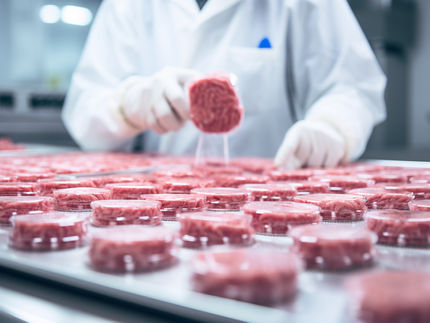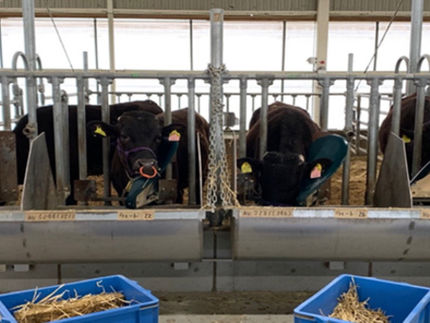Novel Foods Regulatory Framework needs refreshing to foster UK innovation, finds independent review
Independent recommendations to the UK’s food safety regulator pave the way for a robust and innovative approach to regulating foods such as cultivated meat and precision fermentation.
Independent recommendations to the UK’s food safety regulator pave the way for a robust and innovative approach to regulating foods such as cultivated meat and precision fermentation.
Food sustainability nonprofit the Good Food Institute Europe has welcomed Deloitte’s report to the Food Standards Agency (FSA), adding that its range of potential reform options could deliver improvements without requiring an entirely new regulatory system for approving sustainable proteins.
Deloitte reviewed the Novel Foods Regulatory Framework – assimilated into UK law following Brexit – after the UK Government recognised that changes to the existing novel foods authorisation process could help bring foods with climate-mitigation potential, like cultivated meat, to market faster.
The FSA – which is responsible for food safety in England, Wales and Northern Ireland – published an executive summary of the report by Deloitte, which outlines a series of proposals for implementing the government’s planned reforms to the regulatory framework for novel foods.
- Innovation is happening at pace and the FSA has a crucial role in balancing its priorities on food safety, consumer interests, innovation and the social and environmental impact of the food system.
- Providing clarity on how businesses can conduct tastings under strict conditions could make the regulatory regime more business-friendly and innovation-centric.
- Food innovation is global and rapid, and aligning food safety standards with other international regulators could potentially reduce risk assessment costs.
- “The art of the possible” – sweeping reforms are possible within the parameters of the existing novel foods framework. These could include additional guidance to companies and prioritising applications which contribute to national objectives like net zero.
- Consumers will demand access to a wider range of novel products in the future, and the FSA needs to build expertise to ensure these products reach the market efficiently and safely. At the same time, the Government must consider whether additional financial support is needed to support the FSA with reforms.
The report outlines five possible models for a reformed novel foods framework, including collaborative regulation with international partners, akin to the approach taken by the Medicines and Healthcare products Regulatory Agency (MHRA). Such changes could accelerate the path to market for novel sustainable proteins such as cultivated meat and foods which include ingredients made with precision fermentation, such as animal-free dairy.
GFI Europe, which works to advance these foods, encouraged the FSA to capitalise on momentum and work closely in the coming months with consumer groups, scientists and the sustainable protein industry to identify the recommendations in the report that could catalyse innovation and maintain the highest standards of food safety.
Seth Roberts, Policy Manager at the Good Food Institute Europe, said: “This report summary includes some excellent options for consideration by the FSA to ensure the UK’s regulatory process fosters innovation while prioritising consumer safety and confidence.
“Measures such as improved guidance for applicant companies and increased regulatory capacity for horizon-scanning would make the process more transparent and navigable for companies, enabling foods such as cultivated meat and animal-free dairy to deliver their climate benefits quicker.
“With many British sustainable protein companies pushing to bring products to market, we welcome the report’s focus on progressive improvements within the existing regulatory framework. Constructive conversations between the FSA and industry, scientific experts and consumer groups should be the next step forward in building a trusted, innovative framework for sustainable proteins that enables them to deliver on their climate benefits.”
This latest report comes a week after the Government published its formal response to Professor Dame Angela McLean’s review on pro-innovation regulation for life sciences, which had recommended that ‘the government support the Food Standards Agency (FSA) to find ways to enable the acceleration of plans to reform the approval process for Novel Foods’.
In its response, the government said: “The government accepts the recommendation. It recognises that technological advances are accelerating the development of novel foods, including in the alternative protein sector, and that this represents a commercial and economic opportunity for the UK in the immediate years ahead.”
Other news from the department business & finance
Most read news
More news from our other portals
See the theme worlds for related content
Topic world Food safety
Food safety is at the heart of the food and beverage industry. It ensures that the food we eat every day is not only nutritious, but also free of harmful contaminants. From field to plate, the industry monitors and regulates every step of the process with strict quality controls, advanced testing methods and continuous research.

Topic world Food safety
Food safety is at the heart of the food and beverage industry. It ensures that the food we eat every day is not only nutritious, but also free of harmful contaminants. From field to plate, the industry monitors and regulates every step of the process with strict quality controls, advanced testing methods and continuous research.

































































